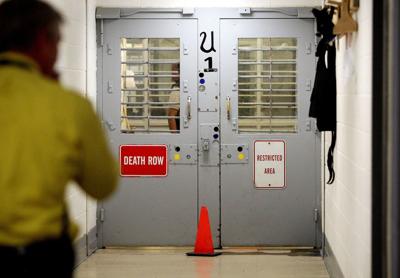There’s nothing easy about the death penalty, which is at best morally ambiguous. We support its judicious use because we believe there are some crimes that are just so heinous that they compel society to respond with the ultimate punishment: the ones that involve killers who are a threat to society, for whom no other punishment is sufficient and about whose guilt there can be no doubt.
Of course, it’s hard to argue that the use of the death penalty is particularly judicious in South Carolina, where the standards for seeking it (much less winning a death sentence) vary so drastically from one judicial circuit and even from one county to the next. Where there remains even today such a clear racial component for its application. Where one co-killer can be executed while the other one gets a life sentence — sometimes even when the one whose life is spared was the ringleader. Where even death-penalty supporters such as us are sometimes uncertain if the person being executed really committed the crime.
That’s why we believe the Legislature should make changes to address known problems with the law. A good start would be requiring decisions about seeking the death penalty to be made by a statewide panel of solicitors rather than an individual solicitor who has to stand for reelection and can too easily be swayed by public emotion.
And even “most heinous crimes” is difficult to navigate, because to the family and friends of a murder victim, no murder is more devastating than the one that killed their loved one.
But one thing ought to be clear about the death penalty: The state should never engage in shortcuts to carry out the execution of a human being.
That’s why we allow defendants appeal after appeal after appeal, even when there’s no doubt about their guilt. It’s why we give governors the authority to commute a death sentence up to the last minute, to account for any questions our courts weren’t able to address. It’s why the courts demand strict protocols for how it’s carried out, and take so seriously constitutional challenges such as the one our state Supreme Court just sent back to a lower court for further work.
And it’s why legislation to hide the names of entities that supply execution drugs should not become law.
Pharmaceutical companies have become reluctant to sell their drugs to states to use in executions because of backlash from death penalty opponents. As a result, South Carolina and other states have been unable to carry out executions by lethal injection for years.
S.120 would shield the names of companies or individuals that make, compound or sell execution drugs from public disclosure. After legislators failed to pass similar legislation earlier, they instead passed a 2021 law that replaces lethal injection with the electric chair as the state’s default method of execution and allows inmates the option of choosing a firing squad or, if it becomes available again, lethal injection. That law is on hold as the S.C. Supreme Court decides whether electrocution and the firing squad are unconstitutional, so supporters are trying again to pass the so-called “shield law.”
The breadth of this secrecy contemplated by the legislation is frankly breathtaking.
Drug purchases would not be subject to the state Procurement Code, and an out-of-state company or individual who sells the drugs to the state would be exempt from all licensing requirements. The only way anyone could ever learn where or under what circumstances the state purchased execution drugs would be if a court, “upon a showing of good cause,” ordered discovery in a criminal or civil case — and a Senate committee voted Thursday to remove that exception.
Although we don’t believe this is the intent, that astounding cloak of secrecy could quite possibly allow the state to purchase drugs that hadn’t been licensed or even tested, or whose origins are unknown. It’s not clear that the public would even be able to find out what the state paid for the drugs or what other agreements went into the purchase.
We sympathize with prison officials who haven’t been able to purchase execution drugs since death penalty opponents began calling out companies that sell them. But as S.C. Corrections Director Bryan Stirling told senators last month, while manufacturers tell him they won’t sell the drugs without such a secrecy law, there’s no guarantee that they will sell them even if the bill passes.
The moral ambiguities of the death penalty make it particularly important that executions be undertaken in the full light of day, where the public realizes what's being done in our name and fully supports it.
State law already allows far too much governmental information to remain secret. And public officials constantly push the envelope on our too-liberal Freedom of Information Act, requiring us to spend our time and money taking them to court to force them to obey what protections we have. But if anything should be fully visible to the public, it's the way our government kills people on our behalf.
Click here for more opinion content from The Post and Courier.














